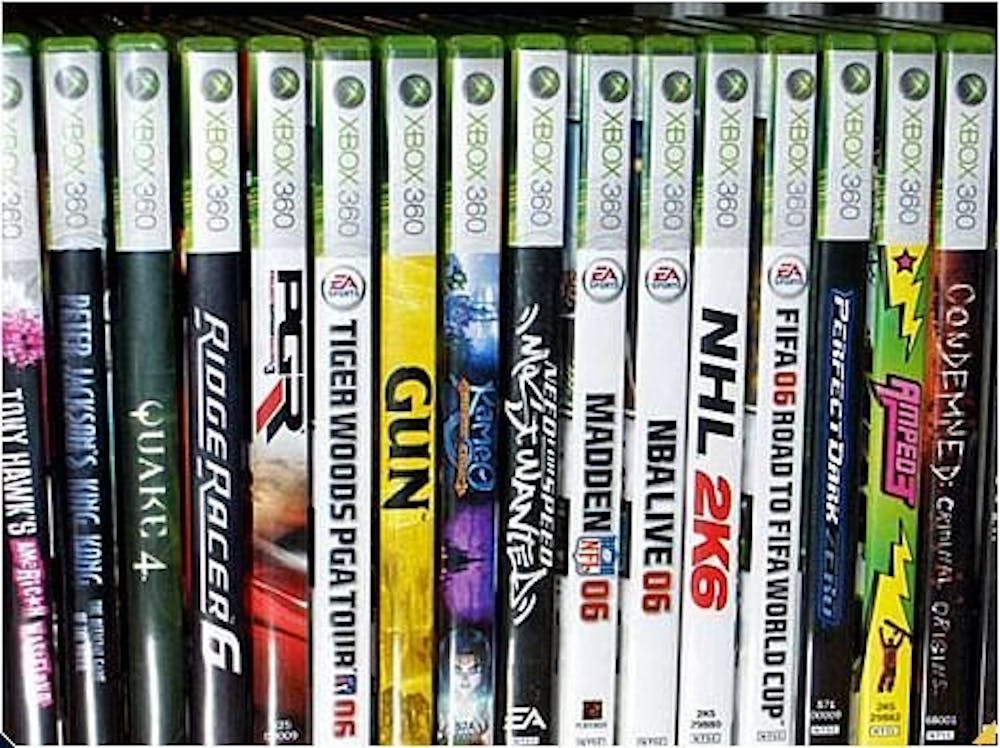I know what I am about to say probably won’t go over too well with the environmentalists, but I don’t want to lose plastic cases for my games. Music has almost gone completely digital, and movies and games are taking steps in the same direction, and it really bothers me. I see so many reasons, some more selfish than others, for why keeping physical media is the best option.
I’m a collector. Some people collect coins and stamps. I collect games. I have a shelf dedicated and filled with my gaming collection. I take the time to organize it exactly the right way.
“Dragon Age” comes first because it is a traditional role-playing game, then both “Mass Effect” games because they are also developed by BioWare and then “Fallout: New Vegas.” After that come the first-person shooters, organized in terms of realism, obviously organized by system as well.
The point being, I take care of these like any collector takes care of his or her collectibles. I can’t collect game files in the same way. I can’t set out memory sticks for each game on a bookshelf (if I can get it onto a memory stick).
The package of the game can be a great bonus when done well. Nintendo does the best job (although Microsoft does a good job with “Halo,” too). The manuals with Nintendo games are colorful and full of information. At the other end of the spectrum, Ubisoft gives you a black-and-white folded piece of paper that instructs you to go online or look in-game for the full controls. I know trees are being cut down and plastics are bad, but it isn’t like my cases and manuals are ending up in a landfill. I use them. I keep them. I read them.
Beyond the collectability of games, there are more practical reasons to keep physical media around. It is almost impossible to transfer ownership of digital property. If I want to play “Halo: Reach” at my friend’s house, I grab the game and go. I can borrow games, sell them and trade them. I actually own these games.
Ownership is the most important reason to keep physical media. With digital games, ownership is limited or nonexistent. Invasive digital rights management limits the number of installs of a game, and many DRM-protected games require an active Internet connection to verify the user or the game won’t run.
Beyond the DRM, gamers are also at the will of the content providers. Most download services let players re-download games they have already purchased for free. However, if the content service de-lists the game or is shut down, that opportunity disappears.
When the original Xbox Live was canceled in 2010, players lost access to all content from the service, including downloadable content from original Xbox titles.
While PC hard drives are easily and affordably upgraded, console hard drives are expensive, and in some cases extremely hard to install. With most retail games weighing in at about six GB and the cheapest Xbox 360 coming with only a four GB hard drive, this creates storage problems.
Digital distribution works well for music. High-quality audio files still take up relatively little space, especially compared to high-definition movies and games. Music files download quickly, even on a poor broadband connection (which I have). On the other hand, a one GB download on Xbox Live can take almost an hour on that same connection, and an unbearable six hours for a full Xbox Game on Demand.
Some costs are associated with packaged games, but they still have plenty of tangible benefits that can’t be ignored. Plus, I really like looking at my bookshelf filled with games.
Let's keep the box in Xbox

Get stories like this in your inbox
Subscribe





